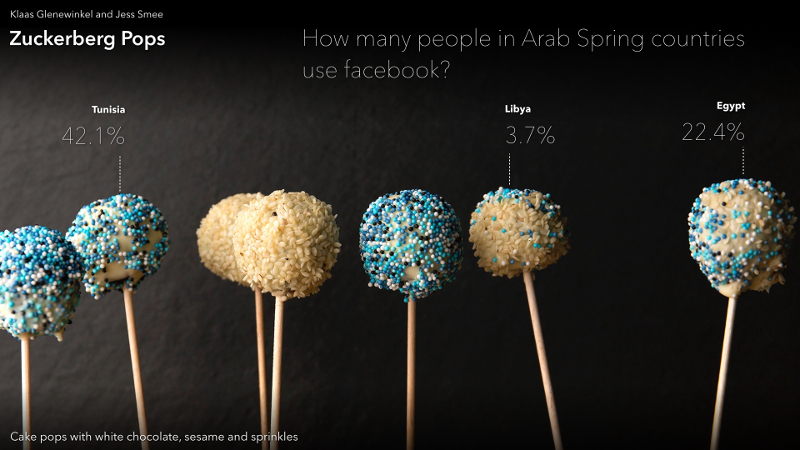
For the fist time Data Cuisine was invited by a an organisation — MiCT — instead of an art institution, with the goal to develop a unique flying data buffet for a special event: the organisation’s 11th anniversary and the Open Eye Award ceremony. Media experts from MiCT, the chefs Sebastian Becker und Maximilian Haxel from bestecklos FingerFood Berlin, Moritz Stefaner and Susanne Jaschko (prozessagenten) collaborated on creating a flying Data Cuisine buffet that translates media related data of some of the countries where MiCT works into a culinary experience. It was a truly challenging assignment.
We started with a brainstorming in order to identify some of the areas that MiCT wanted to focus on. The second part of the workshop was about whirling around ideas, casting them away, picking them up again and getting our hands dirty and — after all of this — ending up with something that is not only edible but also tells a data story.
Each of the dishes represents another surprising set of data — each tells a story or poses interesting questions about the media use and the media landscape in North Africa, the Near East or Cuba. On the night of the event 200 guests experienced the seven data dishes and and were surprised not only by the facts and stories but also the unusual method of data representation.
The image above shows a visualisation of the percentage of internet users that use Facebook. The amount of Facebook users is visualised by the amount of blue sprinkles.
In Tunisia, the number of Facebook users is very high, whereas in Egypt it’s much lower. These numbers makes us wonder whether there is indeed a connection between the use of Facebook and the results of the Arab Spring. In Tunisia, the Arab Spring had a sustainable impact on the democratisation of society, very much in contrast to the situation in Egypt, that fell back under totalitarian leadership.
Two further examples:
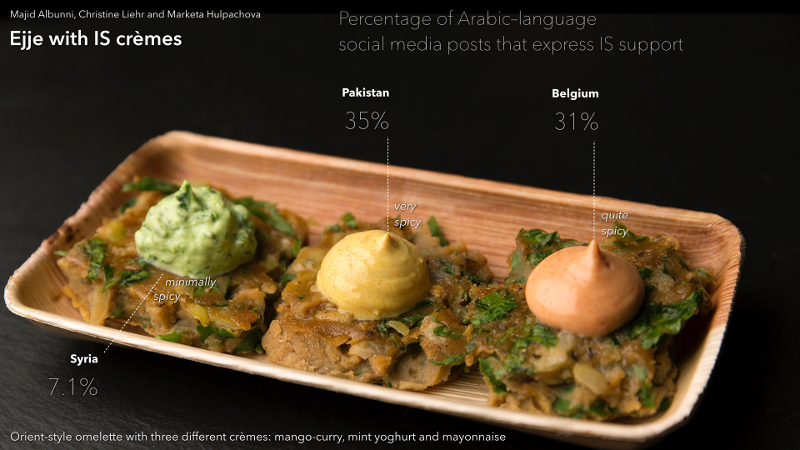
An omelet spiced with cumin and pepper, that’s popular in Syria. It comes with three different cremes: one based on mayonnaise, one being a yoghurt-creme with mint, and a mango-curry-creme based on white cheese. With these three cremes, the workshop participants Majid, Christine and Marketa tried to bring to our attention the somewhat surprising fact that support for Islamic State among Arabic-speaking social media users in Belgium are greater than in the militant group’s heartlands of Syria for example. In Syria, ISIS appears to be dramatically losing the battle for support with more than 92% of tweets, blogs and forum comments hostile to the militants. But the jihadist militants are successful at spreading their message and their efforts appear to be having an effect: outside Syria, support for Isis rises significantly. One can taste the grade of the ISIS support in the cremes. According to the numbers, red pepper was added to them.
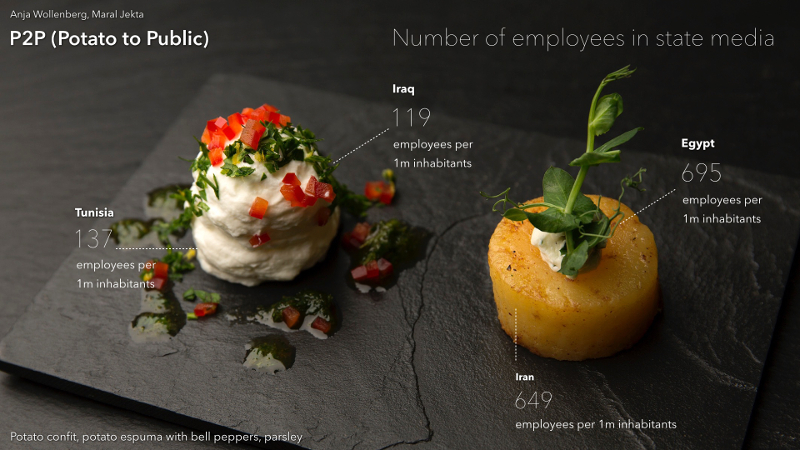 This dish combines two variations of potato and compares the numbers of employees in state media in Tunisia, Iraq, Egypt and Iran. In Egypt there are 57.000 people employed in state media, which is quite a big number — whereas in Tunisia it’s only a thousand. This dominance of state media of course influences the public sphere and seems to go hand in hand with the authoritarian rule in Iran and Egypt. Interestingly enough, in Iraq the number of employees is comparably low, and that speaks for a more liberal society than we might think or than we are told. To be discussed.
This dish combines two variations of potato and compares the numbers of employees in state media in Tunisia, Iraq, Egypt and Iran. In Egypt there are 57.000 people employed in state media, which is quite a big number — whereas in Tunisia it’s only a thousand. This dominance of state media of course influences the public sphere and seems to go hand in hand with the authoritarian rule in Iran and Egypt. Interestingly enough, in Iraq the number of employees is comparably low, and that speaks for a more liberal society than we might think or than we are told. To be discussed.
In order to express this feeling of dominance of state media, Anja and Maral came up with the idea to represent it by a piece of potato, that per se is dense and a bit one-dimensional when it comes to taste. In contrast, the potato espuma — representing a higher grade of liberality and variety of media — feels light on the tongue and is definitely more colourful.
Find all images and dishes on Data Cuisine.
Image credits: Photographs by Uli Holz, graphics by Moritz Stefaner
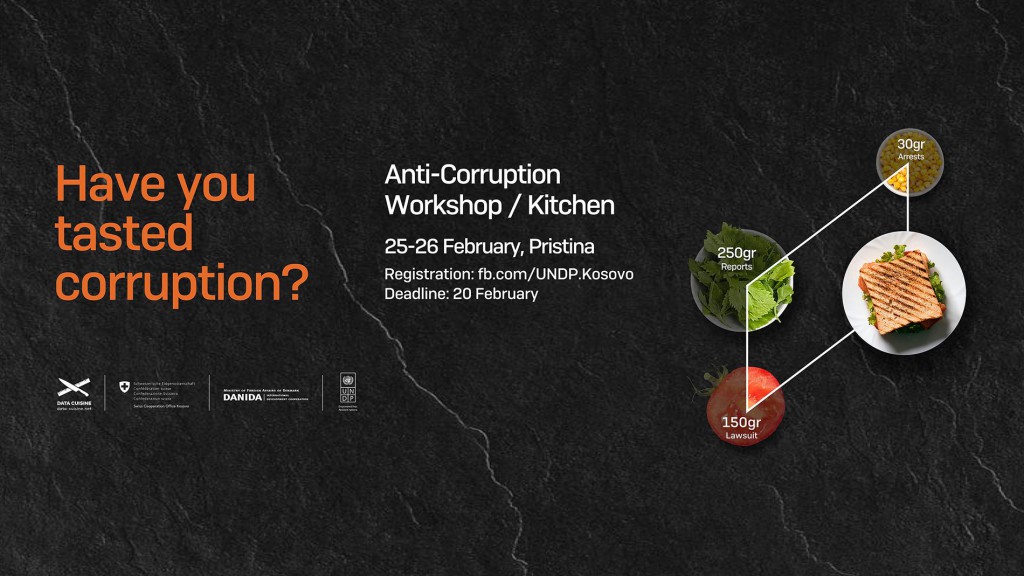
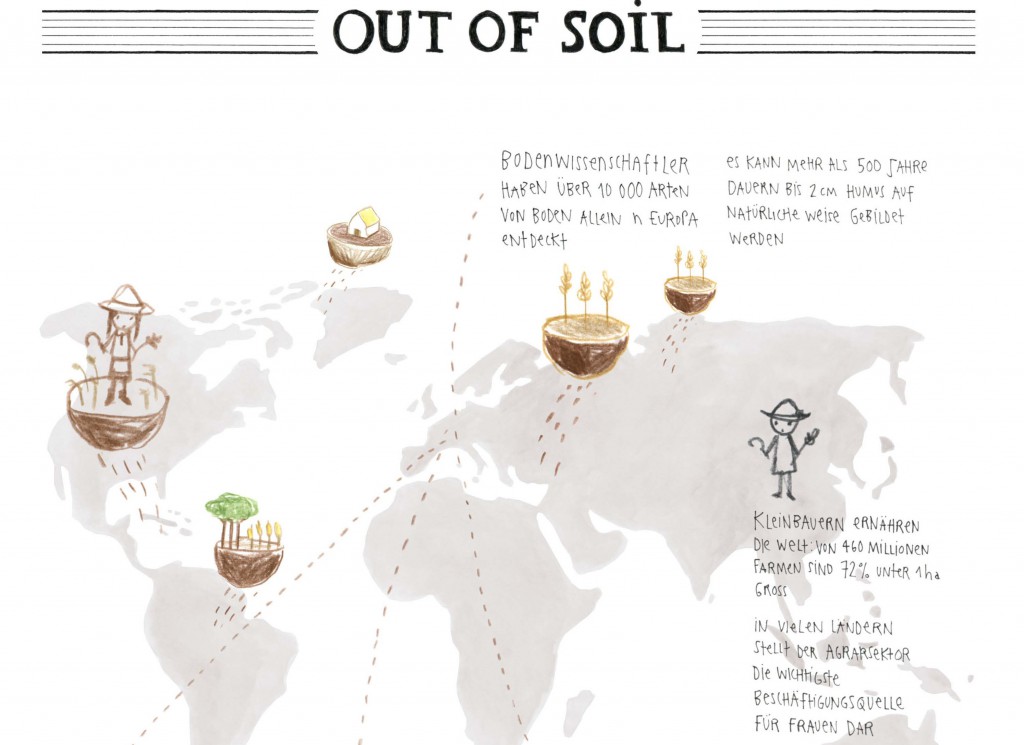



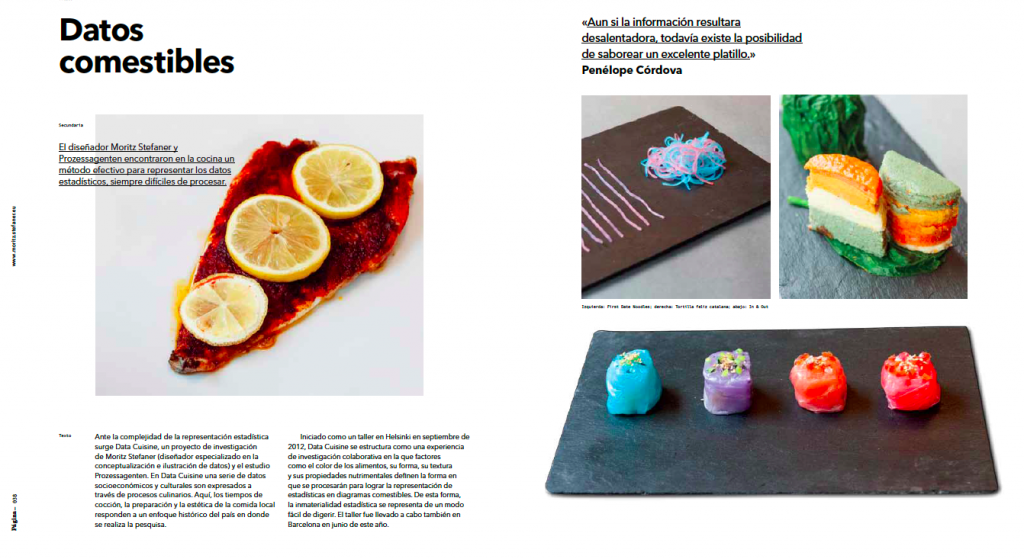
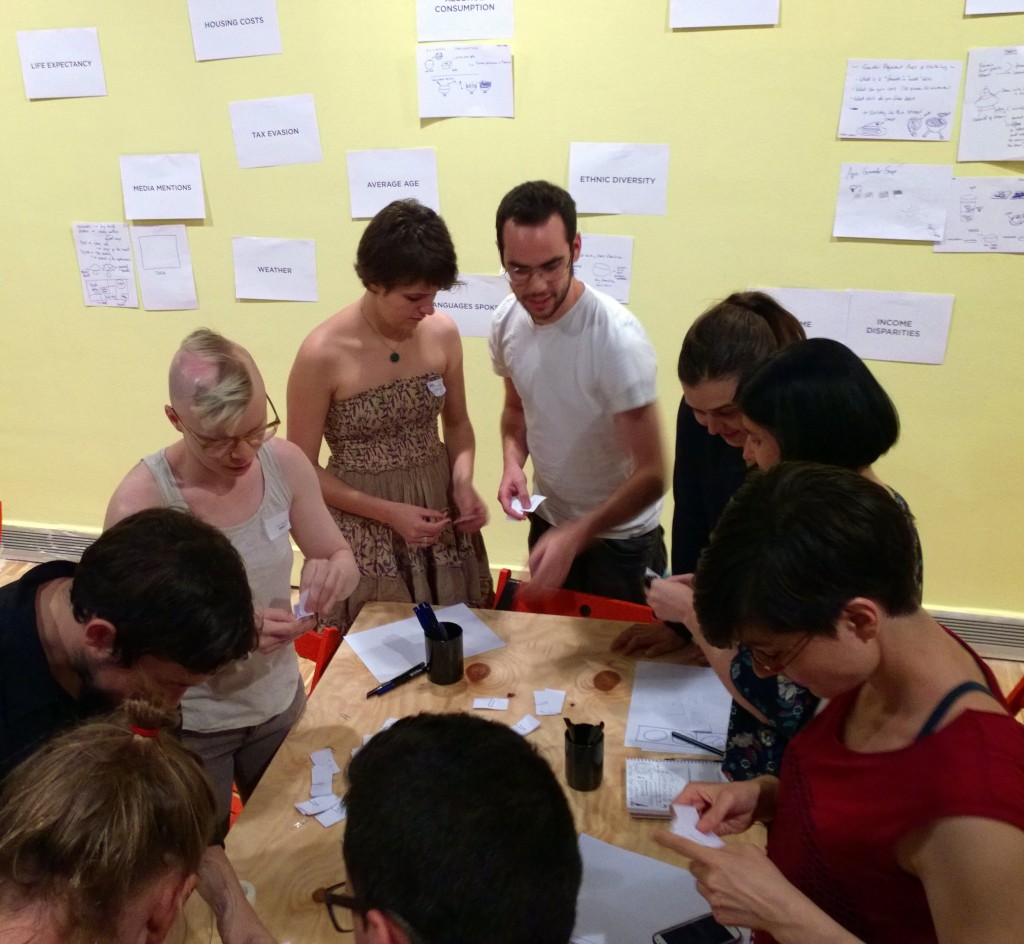
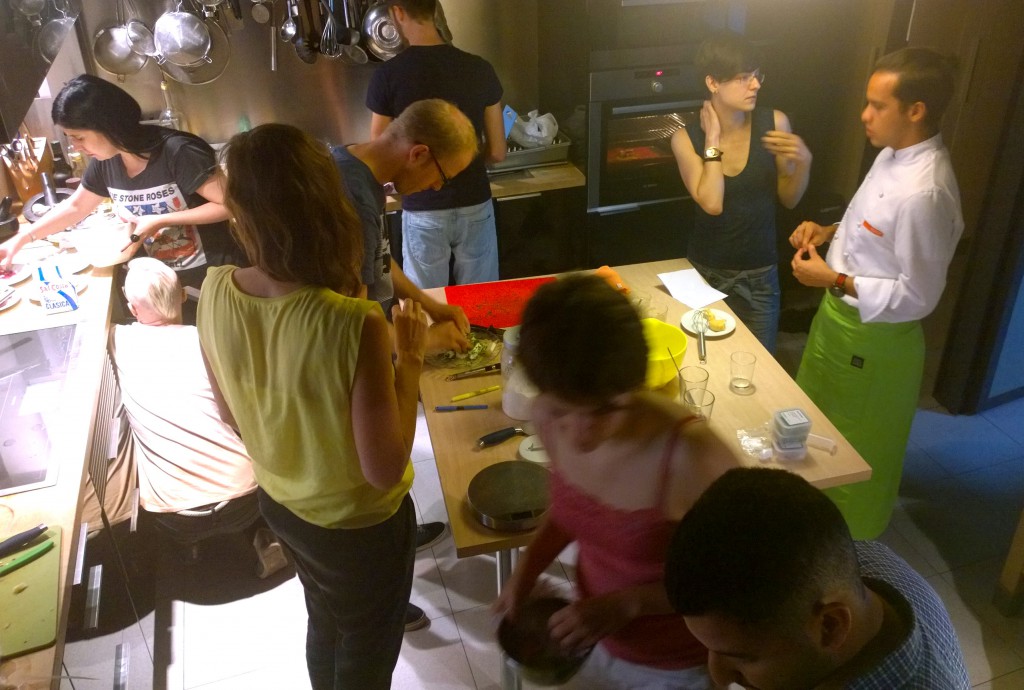
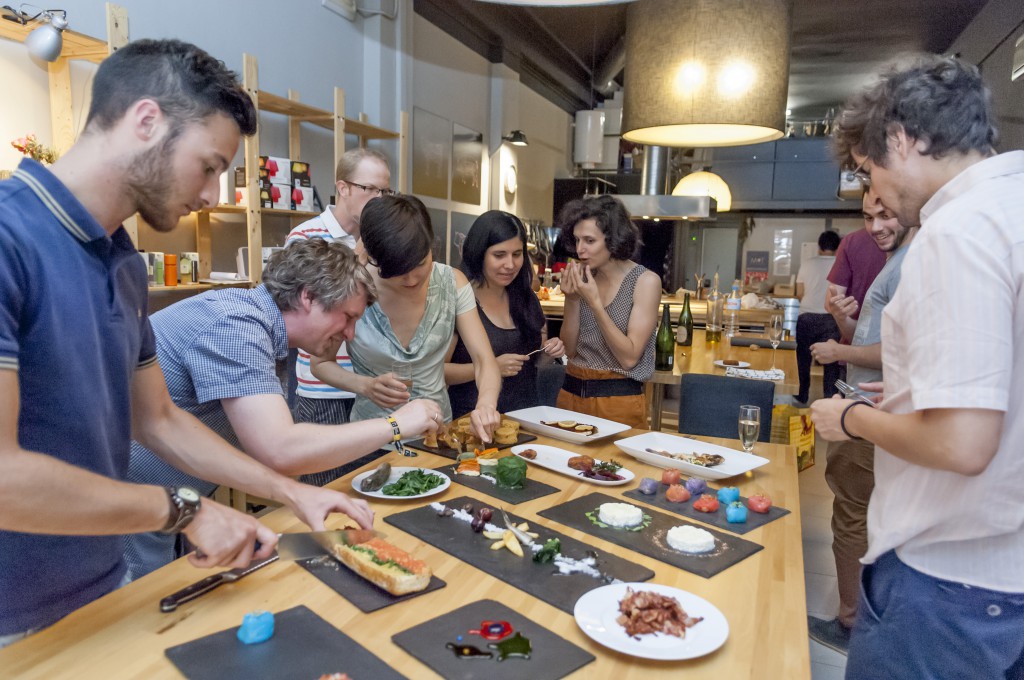
 Blog
Blog